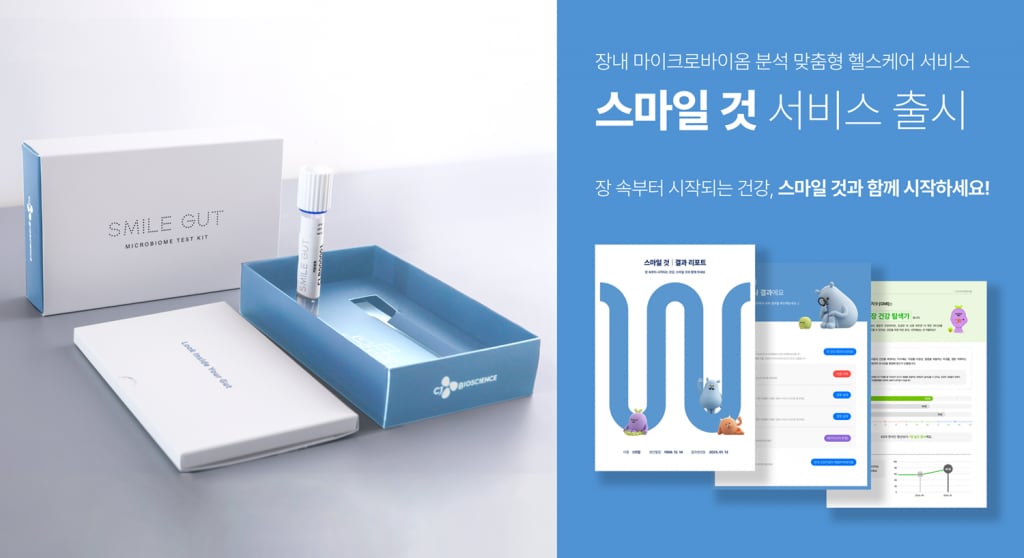The gut microbiome test kit, known as SMILE GUT, was launched on January 13.
Users can purchase the test kit from SMILE GUT’s official website and send in their stool samples for analysis.
The company said that the launch of the test kit was to increase the accessibility of gut microbiome testing to the public.
Prior to the launch, the company has been providing its gut microbiome testing known as GUT INSIDE to hospitals. Currently, there are about 80 hospitals and clinics using the service.
The aim, however, is not only to make gut microbiome testing more accessible to the public.
According to the company, its longer term plan is to tap on the gut microbiome data collected for developing personalised health functional foods.
This is to align itself with the ongoing hyper-personalisation nutrition trend, and it will develop such products with its parent company CJ Group and CJ CheilJedang.
“We’ve launched the service to help consumers objectively understand their health status and practice systematic health management.
“We will continue to strengthen our customised health management solutions based on our technological competitiveness in the healthcare market to support consumers’ healthy lifestyles,” said the firm.
Personalised nutrition is a booming industry in South Korea which has officially introduced the Customised Health Functional Food System in January 2025, having piloting the system since July 2020.
Amway Korea is another well-known example providing precision probiotic supplements based on gut microbiome testing results.
The company has been able to do so by using the technologies developed by local start-up Human Effective Microbes (HEM) Pharma.
Similarly, users are required to send in their stool samples for analysis. They will then receive recommendations on the types of probiotics that they could take to improve their gut microbiome and production of beneficial short-chain fatty acids.
How does it work
CJ Bioscience uses next-generation sequencing (NGS) to analyse the genetic information of the gut microbiome species present in the stool samples.
It then uses artificial intelligence (AI) to compare the results with that of 140,000 healthy and diseased profiles collected over a decade.
A Gut Microbiome Index (GMI) would be given to “rate” the gut microbiome of users based on 1) their microbial diversity, 2) proportion of harmful bacteria that cause inflammation, 3) proportion of beneficial bacteria that suppress inflammation, and 4) similarity to healthy profile.
The higher the scores, the more similar it is to the intestinal condition of a healthy person. The total score is 100.
Test results can be expected within 14 business days from the sample collection date. The results will also show how the users’ state of their gut microbiome could affect other parts of their body.
Users could also receive customised health advice, including types of probiotics that they can take, as well as food recipes.
The company recommends users to undergo the test once every six months if the GMI is 40 or higher. However, if the GMI is 40 or lower, testing is recommended once every three months.





